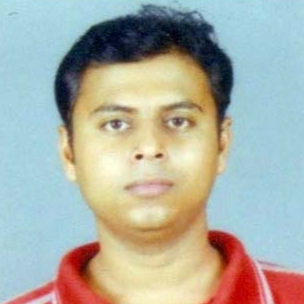
Apangshu Das
Work place: Department of ECE, National Institute of Technology Agartala, Agartala, 799046, India
E-mail: apangshuextc@gmail.com
Website:
Research Interests:
Biography
Apangshu Das is an assistant professor in the Department of ECE, National Institute of Technology Agartala. He received M.Tech degree in Microelectronics and VLSI Design from National Institute of Technology Agartala and B. E. degree in Electronic and Communication Engineering from Nagpur University, in 2012 and 2009 respectively. He is currently working toward the PhD degree on thermal-aware logic synthesis. His current research interest includes thermal aware logic synthesis, low power design, optimization techniques, and reversible logic synthesis.
Author Articles
Area-Power-Temperature Aware AND-XOR Network Synthesis Based on Shared Mixed Polarity Reed-Muller Expansion
By Apangshu Das Sambhu Nath Pradhan
DOI: https://doi.org/10.5815/ijisa.2018.12.04, Pub. Date: 8 Dec. 2018
Modern Integrated circuits (ICs) suffer from excessive power and temperature issues because of embedding a large number of applications on small silicon real estate. Low power technique is introduced to reduce the power. With the reduction of power, area of circuit increases and vice versa. It shows a trade-off nature between them. Increase of area is against the trend of technology scaling which demands small area. Due to small area and high power dissipation, power-density increases. As power-density is directly converging into temperature, it emerges as a challenge in front of the VLSI design engineer to minimize the effect of temperature by reducing power-density. In this work, an attempt has been made to reduce the effect of power-density along with area and power so that AND-XOR based circuit is balanced in terms of area, power, and temperature. AND-XOR based reed-muller (RM) mixed polarity circuit forms are considered in this work. Polarity conversions are made in such a way that possibility of maximum sharing among the sub-function is increased. Genetic algorithm is (a non-exhaustive heuristic algorithm) used to select the polarity of the input variable for maximum sharing. The proposed synthesis approach shows 27.11%, 20.69%, and 32.30% savings in area, power, and power-density respectively than that of reported results. For the validation of the proposed approach, the best solutions are implemented in Cadence digital domain to obtain actual silicon area and power consumption. HotSpot tool is used to get the absolute temperature of the circuit.
[...] Read more.Other Articles
Subscribe to receive issue release notifications and newsletters from MECS Press journals